After requesting a document via the DocuSign api and writing it to the file system it appears blank after opening it. The docs say it returns a "PDF File" and the response body is returned as below.
const doc =
await rp.get(`${apiBaseUrl}/${BASE_URI_SUFFIX}/accounts/${accountId}/envelopes/${envelopeId}/documents/${document.documentId}`,
{auth: { bearer: token }}
);
fs.writeFile(document.name, new Buffer(doc, "binary"), function(err) {
if (err) throw err;
console.log('Saved!');
});
Response body:
{
"documents": [
{
"name": "Name of doc.docx",
"content": "%PDF-1.5\n%\ufffd\ufffd\ufffd\ufffd\n%Writing objects...\n4 0 obj\n<<\n/Type /Page\n/Resources 5 0 R\n/Parent 3 0 R\n/MediaBox [0 0 612 792 ]\n/Contents [6 0 R 7 0 R 8 0 R 9 0 R 10 0 R ]\n/Group <<\n/Type /Group\n/S /Transparency\n/CS /DeviceRGB\n>>\n/Tabs /S\n/StructParents 0\n>>\nendobj\n5 0 obj\n<<\n/Font <<\n/F1 11 0 R\n/F2 12 0 R\n/F3 13 0 R\n>>\n/ExtGState <<\n/GS7 14 0 R\n/GS8 15 0 R\n>>\n/ProcSet [/PDF /Text ...
}
]}

